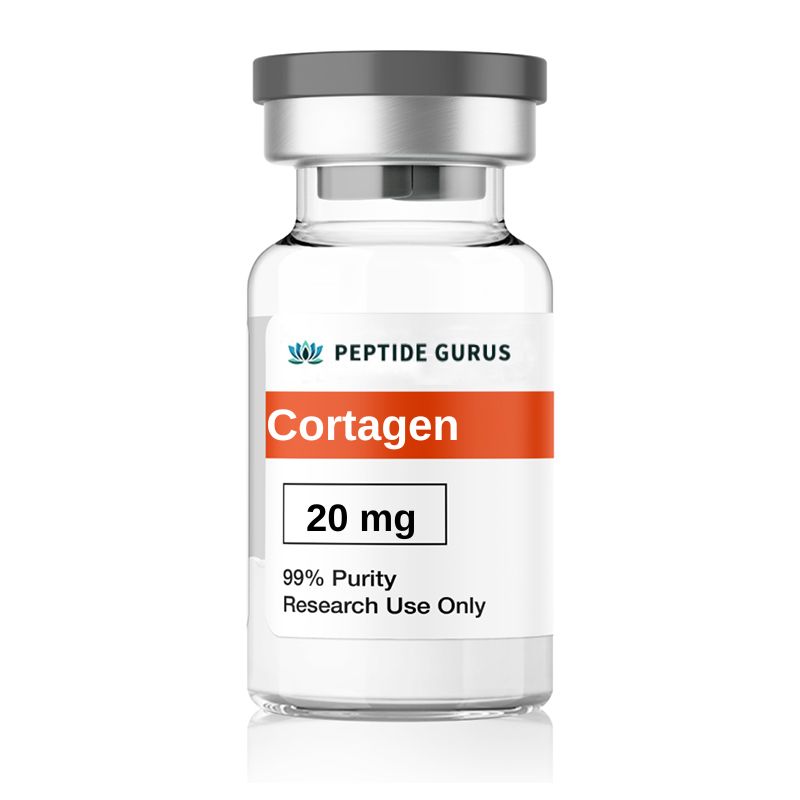



Categories: Peptide Bioregulators, Peptides and Their Dosages
Cortagen, a remarkable bioregulatory peptide known for its significant impact on the brain and central nervous system, plays a crucial role in moderating the body’s inflammatory responses. Originating from the pioneering research of Vladimir Khavinson, this peptide has shown potential in various therapeutic applications, particularly in treating ischemic brain injuries and enhancing neuroregeneration.
Biological Impact and Research Insights
Cortagen’s primary mechanism involves the modulation of inflammatory pathways within the nervous system, aiming to restore a balance between pro-inflammatory and anti-inflammatory processes. This action is crucial in conditions such as ischemic brain injuries, where inflammation can lead to significant long-term damage. Studies suggest that Cortagen not only helps reduce the immediate effects of such injuries but also promotes long-term recovery of nerve functions.
Mechanisms and Effects
At the molecular level, Cortagen influences several key biological pathways:
Interleukin-2 Expression: By stimulating this cytokine, Cortagen plays a vital role in regulating immune responses, potentially reducing autoimmune reactions that can exacerbate neurological conditions.
Nerve Regeneration: Research indicates that Cortagen significantly enhances the regenerative processes in nerve tissues, suggesting its utility in recovery from nerve transection or injury, which is critical for patients suffering from spinal cord injuries or similar conditions.
Clinical Applications and Potential
Cortagen’s impact extends beyond the central nervous system. Its secondary effects on cardiac tissues and the immune system suggest a broader scope of potential applications in medical science. For instance, its regulatory effects on immune functions make it a candidate for treating autoimmune diseases, where the immune system mistakenly attacks healthy tissues.
PeptideGurus is a leading supplier of American-made research peptides, offering top-quality products at competitive prices. With a focus on excellence and customer service, they ensure a secure and convenient ordering process with global shipping.
CONTACT